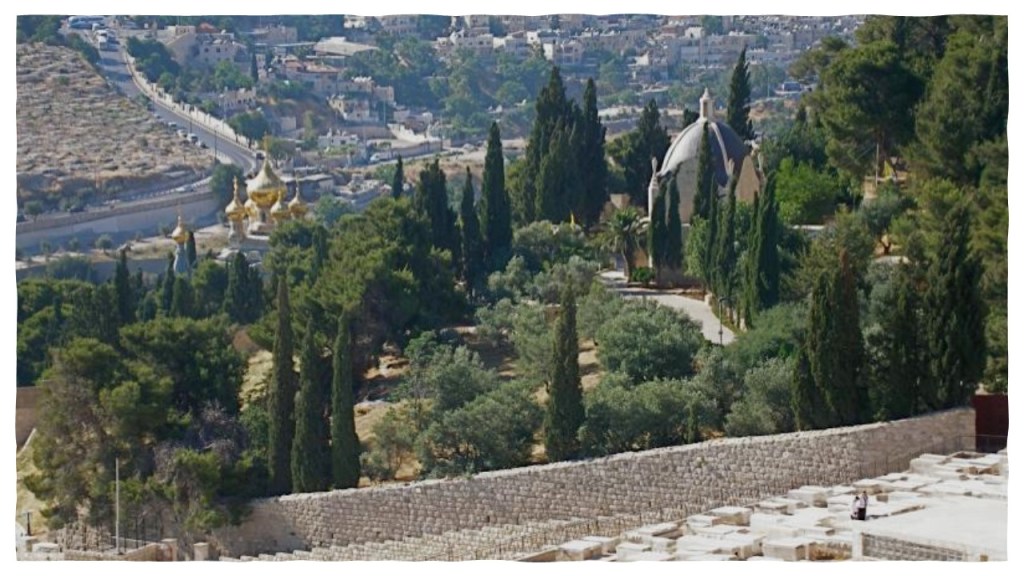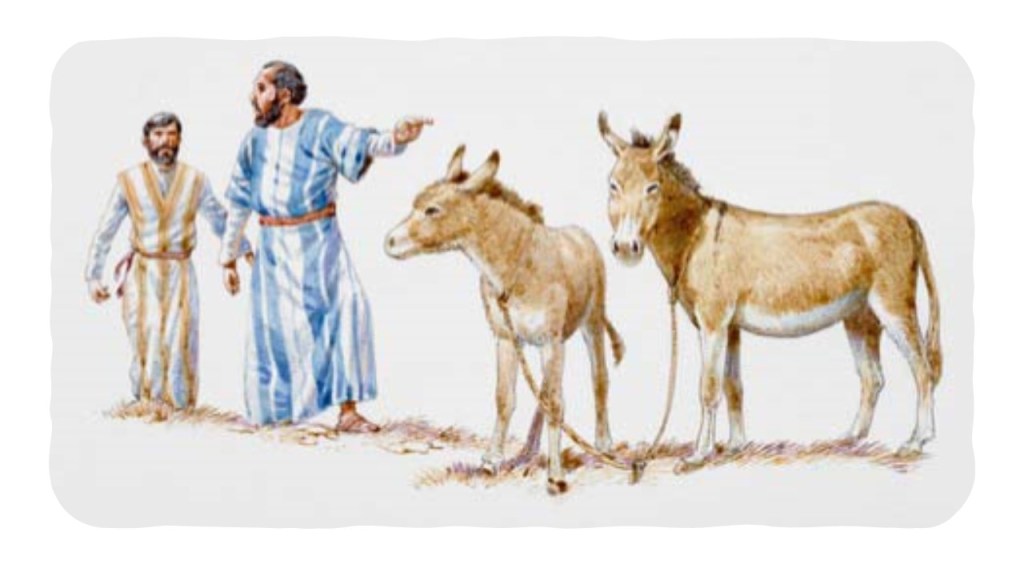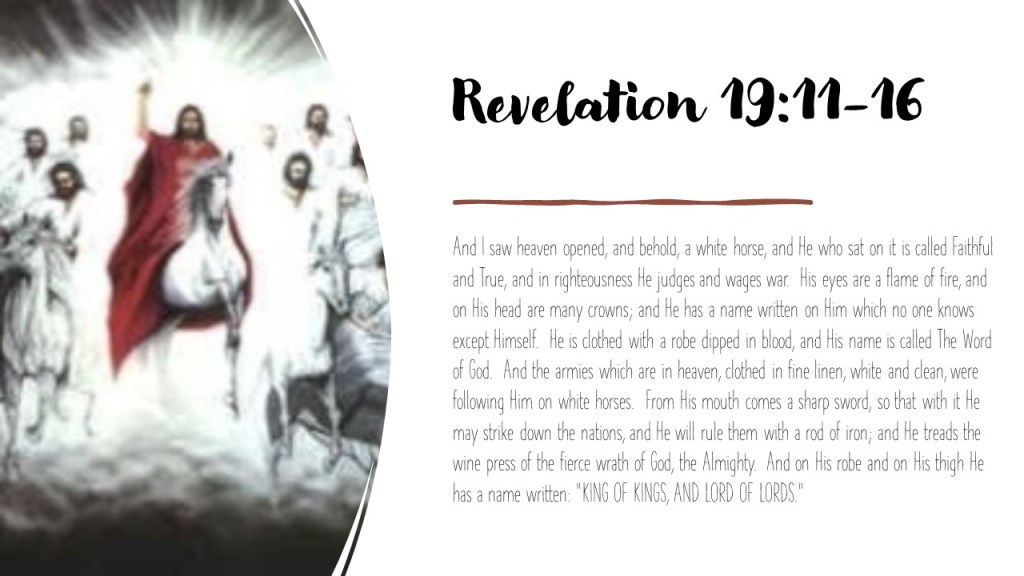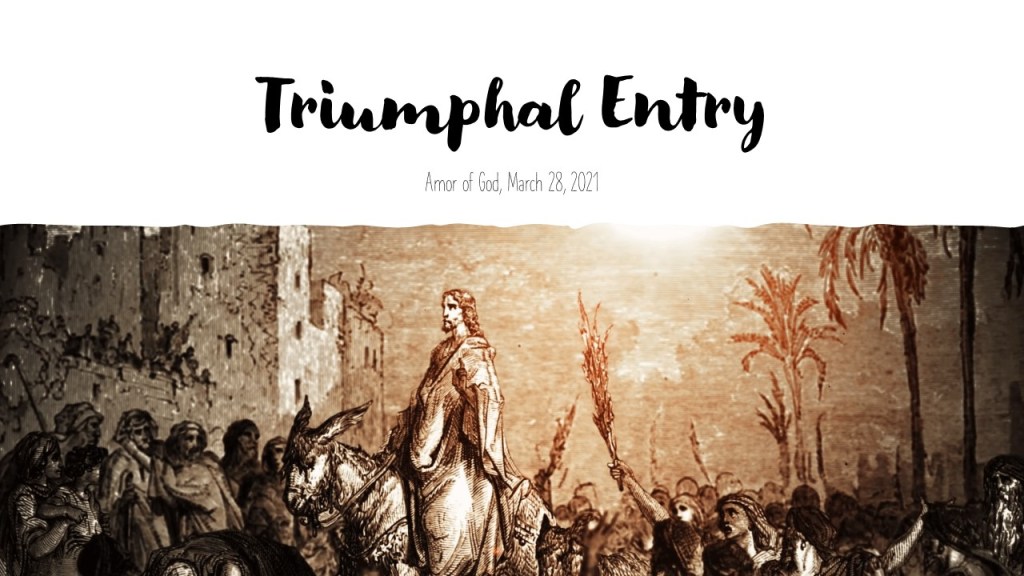I. Introduction
In our bible study lessons, we are getting closer to the death and resurrection of Jesus. Oddly, just in time for Easter. What are the odds?
Jesus has been making His way toward Jerusalem for His final Passover. Along the way, He has been telling parables and teaching in synagogues. He has been describing the Kingdom of Heaven, prophesying about the end times, sharing difficult wisdom such as “It is easier to go through the eye of a needle than a rich person to enter the Kingdom of God,” healing the sick and the lame.
Jesus has set out resolutely toward Jerusalem to fulfill His purpose. And in Luke 18:31-34, Jesus tells His disciples what He’s doing, but the disciples do not understand.
Now He took the twelve aside and said to them, “Behold, we are going up to Jerusalem, and all the things that have been written through the prophets about the Son of Man will be accomplished. For He will be handed over to the Gentiles, and will be ridiculed, and abused, and spit upon, and after they have flogged Him, they will kill Him; and on the third day He will rise.” The disciples understood none of these things, and the meaning of this statement was hidden from them, and they did not comprehend the things that were said.
And they continued toward Jerusalem. Jesus gives sight to Bartimaeus, offers salvation to Zaccheus, tells the parable of the Ten Minas.
On a side note, I’ve been attending a bible study on the doctrine of the rapture, and it’s opened my eyes to better understanding some of the things Jesus says, including the Ten Minas. Jesus prefaces His parable of the Ten Minas in Luke 19:11-12 with,
Now while they were listening to these things, Jesus went on to tell a parable, because He was near Jerusalem and they thought that the kingdom of God was going to appear immediately. So He said, “A nobleman went to a distant country to receive a kingdom for himself, and then to return.
Jesus is explaining to Israel, who is expecting their Messiah to deliver them from Roman occupation, that their expectations will not be met, at least not in the way they expect. Jesus will die, prepare a place in heaven for them, and then return. That’s what Jesus has been doing for the last 2000 years. Interceding on our behalf, and preparing a heavenly place for us.
And now, in Luke 19:28,
After Jesus said these things, He was going on ahead, going up to Jerusalem.
Jesus continues with His purpose. He has resolutely set His feet toward Jerusalem.
II. The Unridden Colt
Luke 19:29-30,
When He approached Bethphage and Bethany, near the mountain that is called Olivet, He sent two of the disciples, saying, “Go into the village ahead of you; there, as you enter, you will find a colt tied, on which no one yet has ever sat; untie it and bring it here.

Two thousand years later, and I read this and barely give it a second read. Did you know all four gospels record this event? Why are all four gospel writers giving this focus to this event? It seems so insignificant, Jesus on a donkey.
I mentioned earlier that Jesus has been performing miracles on His way to Jerusalem. Our scripture says Jesus is near Bethany, where Jesus performed probably His greatest miracle, the raising of Lazarus from the dead, demonstrating Jesus’ power and authority over life and death. This had, as you can imagine, a huge effect on the Jewish population. Here is the scene from John 11:43-46 – Jesus prays to His Father in heaven,
And when He had said these things, He cried out with a loud voice, “Lazarus, come out!” Out came the man who had died, bound hand and foot with wrappings, and his face was wrapped around with a cloth. Jesus said to them, “Unbind him, and let him go.”
Therefore many of the Jews who came to Mary, and saw what He had done, believed in Him. But some of them went to the Pharisees and told them the things which Jesus had done.

The next chapter, John 12 verse 9, still near Bethany, crowds are following Jesus. They’re even following Lazarus, so they may see a man raised from the dead. All the people believed Jesus was the prophesied Messiah and they yearned for His deliverance.
But the Pharisees denied He was the Messiah and plotted to kill Him. They even plotted to kill Lazarus. They wanted to destroy this revelation that the Messiah had come, not knowing or understanding that their very plot to kill Jesus was fulfilling His prophecy.
And now, Jesus asks for a donkey. What’s going on?
I think one possibility we cannot overlook is that, not only is Jesus fulfilling prophecy, He is making prophecy. In Zechariah 9:9-10 is the following prophecy about the triumphal entry of the Messiah –
Rejoice greatly, daughter of Zion!
Shout in triumph, daughter of Jerusalem!
Behold, your king is coming to you;
He is righteous and endowed with salvation,
Humble, and mounted on a donkey,
Even on a colt, the foal of a donkey.And I will eliminate the chariot from Ephraim
And the horse from Jerusalem;
And the bow of war will be eliminated.
And He will speak peace to the nations;
And His dominion will be from sea to sea,
And from the Euphrates River to the ends of the earth.
It would be easy to simply fulfill this prophecy, but Jesus adds a layer of complexity to demonstrate His sovereignty. He says in Luke 19:29-31,
When He approached Bethphage and Bethany, near the mountain that is called Olivet, He sent two of the disciples, saying, “Go into the village ahead of you; there, as you enter, you will find a colt tied, on which no one yet has ever sat; untie it and bring it here. And if anyone asks you, ‘Why are you untying it?’ you shall say this: ‘The Lord has need of it.’” So those who were sent left and found it just as He had told them. And as they were untying the colt, its owners said to them, “Why are you untying the colt?” They said, “The Lord has need of it.”
Jesus said it, so it is so. This Mount of Olives is a hill outside of Jerusalem, which a day’s journey from Jerusalem. It is a place of great significance. It was on the Mount of Olives that king David wept, along with his faithful followers, as he fled from Jerusalem and from his son, Absolom. According to Zachariah 14:4, the Messiah will appear on the Mount of Olives, which would then be split in half, forming a great valley. It is here that the “triumphal entry” of the Messiah will occur.

Jesus paused here on the Mount of Olives before entering Jerusalem. He sent two of His disciples on ahead to fetch the donkey. Jesus didn’t need to ride, it was not a long walk into Jerusalem. I think this is the first time Jesus rides an animal, the only other time is in Revelation 19:11 when He returns on a white horse.
No, the purpose for riding into Jerusalem on a never-ridden foal of a donkey was to fulfill prophecy, and thereby to proclaim He is the Messiah.

Jesus’ exact knowledge of the location of the donkey, as well as the response of the owners, indicates Jesus is completely aware of and in control of His environment. The fact that the donkey on which Jesus rode had never been ridden may also be symbolic of His deity. In Numbers 19:2 and Deuteronomy 21:3, animals sacrificed to God were not to have ever borne a yoke. The unyoked, unridden donkey is a clue that the donkey is an offering to God, something to be used in His service.
I also think Jesus riding on a never-ridden donkey is also miraculous event. Ever watch those old cowboy movies with the colt bucking and leaping because it’s never been ridden or broken-in? The donkey’s owners were probably saying, “I gotta see this. I’ll get my iPhone camera and video it.”
It’s also interesting that the disciples did not ask first to borrow the donkey. Jesus as Lord has the right to use anything we think we own. Think of the various ways in which a previously unridden animal could have been acquired. Jesus Himself could have gone and asked to use it. He could have identified Himself as Messiah, and explained that He had certain prophecies to fulfill, and the use of that person’s animal would be an important contribution to His kingdom. Or Jesus could have sent His disciples to say the same thing. Once they explained who Jesus was, surely the owners would let them borrow the donkey. Or they could have rented or bought the donkey.
But that’s not the way it was done. Instead, the two disciples went into the village, and without asking, started to take the donkey. Right in front of the owners. Exactly they Jesus said to do it. Exactly the way Jesus said to. Find the donkey, take it, give an explanation only if they were challenged.
The owners said, “Hey, that’s mine,” and the amazing thing is that the disciples said, “The Lord needs it,” and the owners were like, “oh, ok.” The two disciples walked off with the donkey. No promises made to return the donkey.
Back in those days, wealth was often measured in terms of cattle. Today, it would be like getting into somebody’s Maserati and driving off. “Sorry! The Lord needs it!”
Maybe the owners understood who Jesus is, and recognized Him as Lord. If Jesus was indeed Lord, then He had every right to use what He had created.
If Jesus was the Messiah, the Son of God, why did He need to borrow a donkey? Why not just … I dunno, make one? I think Jesus is consistent throughout His life. His parents didn’t stay in a fancy house, they had to borrow a stable. Jesus said He had no home of His own, and no place to rest His head, Later, Jesus was even buried in a borrowed tomb.
Why did the Creator of the Earth put Himself in a position where He had to borrow what belonged to others? Well, in the first place, everything does belong to Him. The donkey did not belong to men, but to God. They were only stewards of things. Thus, for the Son of God to “borrow” what belongs to others is really for Him to possess what is His.
Second, as the Creator of the Earth, and as the Creator of man, our Lord also possesses man. Man is not free. We are either slaves to Christ or slaves to sin. Only God is truly free, free to do with His creation as He chooses. Jesus could claim the donkey because He owned the donkey, and He owned the owners. We are His, and we belong to Him.
Today, we are far less inclined to let go of things we own. We say Jesus is Lord but withhold that which we idolize. Jesus continues this challenge to us, even today. He carries out His earthly work through the hands and feet of His disciples. It is when we release our idols, and give freely to Him that we are a testimony that He is Lord.
One day, Jesus will return and claim His kingdom and all that is in it. Nothing is exempt. Every knee will bow and profess Jesus is Lord. Our ability to do this freely of our own will is limited, and He will eventually claim His own.
III. In Service to Our Lord
Luke 19:35-40 –
They brought it to Jesus, threw their cloaks on the colt and put Jesus on it. As he went along, people spread their cloaks on the road. When he came near the place where the road goes down the Mount of Olives, the whole crowd of disciples began joyfully to praise God in loud voices for all the miracles they had seen: “Blessed is the king who comes in the name of the Lord!” “Peace in heaven and glory in the highest!” Some of the Pharisees in the crowd said to Jesus, “Teacher, rebuke your disciples!” “I tell you,” he replied, “if they keep quiet, the stones will cry out.”

At the birth of Jesus, wise men had searched for the One who was born King of the Jews. Now, the messianic expectations of the people appeared to be at hand. They shouted, “Blessed is the King who comes in the name of the Lord!” This echoes the praise Psalms, like Psalm 118:24-26 –
This is the day which the Lord has made;
Let’s rejoice and be glad in it.
Please, O Lord, do save us;
Please, O Lord, do send prosperity!
Blessed is the one who comes in the name of the Lord;
The people believed the Messiah would come in the name and power of God to restore the kingdom to Israel. They did not understand Jesus’ kingdom was a different sort than they desired, yet they still shouted praise.
The second part of their praise also reflects aspects of Jesus’ birth. While the baby lay in a manger, shepherds were confronted with an angelic host that proclaimed, “Glory to God in the highest heaven, and peace on earth to people he favors!” (Luke 2:14).
The crowd welcoming Jesus to Jerusalem praised God for His peace and glory. The peace and glory of God who reigns in heaven. The peace between God and humankind made possible by the Prince of Peace. The people offered praise for Jesus because they believed He was the Messiah.
Believers rightly worship Jesus for the works of God we have seen. Jesus’ miracles today continues to transform sinners into saints. Believers have every reason to enjoy His work and join in the chorus of praise for the One who loves us and gave Himself for us.
Interestingly, in verses 39-40 Luke tells us that some of the Pharisees in the crowd admonished Jesus to rebuke His disciples for their worship. They were not merely saying to quiet them, they were demanding that He literally reject their assertions that He was the Messiah King. They believe He is not worthy of their praise. Jesus replies with a paraphrase of Habakkuk 2:11,
“For the stones will cry out from the wall, and the rafters will answer them from the woodwork.”
The Messiah was publicly presenting Himself to the nation, and even inanimate objects would be called upon to testify that He was the Messiah King, He was worthy of praise.
There were those in the crowd who got it and those who did not. What was expressive for some was offensive to others. The Pharisees were seeing the crowds grow in their support of Jesus. They apparently thought Jesus would agree with them that the crowd had gone too far. But Jesus knew what they did not know, though these crowds were now cheering, in a few days, the crowds would be taunting.
Though crowds were saying Blessed is the King who comes in the name of the Lord, by the end of the week the crowds would be shouting Crucify Him. This celebration of adoration would be short-lived. But for the moment, there was praise and adoration for the King entering on a donkey. The road to the cross was always going to be taken by riding a donkey, a sign of humility and obedience. It was not the entrance that was heralded from the mountain tops; it was an entrance that was embraced by those on the side of a road who had open hearts and minds to the Savior riding into town on a donkey.
IV. Jesus Wept
Jesus understood all this, and recognized that, while the crowds were rejoicing now, the same crowd would soon reject Him. Luke 19:41-44 –
When He approached Jerusalem, He saw the city and wept over it, saying, “If you had known on this day, even you, the conditions for peace! But now they have been hidden from your eyes. For the days will come upon you when your enemies will put up a barricade against you, and surround you and hem you in on every side, and they will level you to the ground, and throw down your children within you, and they will not leave in you one stone upon another, because you did not recognize the time of your visitation.”

What an amazing contrast there is here between the joyful reception of Jesus by the crowds with our Lord’s tears. They thought they had received Him in a way that was appropriate and fitting; Jesus viewed the event as a disaster, and as leading to disaster, for Jerusalem.
Jerusalem failed to grasp “the things which make for peace.” The majority of the people thought that this peace would be accomplished by a sword, and by force. They supposed that when the Messiah came, He would utilize military might, and that He would throw off the shackles of Rome. When Jesus wept because Jerusalem did not know what would bring about peace, He wept because He knew what lay ahead for this wayward, wrong-thinking nation. Instead of Messiah’s coming bringing about the demise of Rome, the rejection of Jesus as Messiah meant the destruction of Jerusalem, at the hand of Roman soldiers. Jesus therefore spoke of the coming destruction of Jerusalem, which took place in 70 A.D.
It was not by the Messiah’s use of force and power, nor by the death of the Messiah’s enemies that the kingdom was to be brought about, but by the Messiah’s death at the hand of His enemies. It was not triumph which would bring in the kingdom, but the tragedy of the cross. God’s ways are never man’s ways. Man would have brought about the kingdom in many ways, but man would never have conceived of doing so by a cross, by apparent defeat, by the suffering of Messiah Himself, for the sins of His people.
V. Conclusion
The triumphal entry into Jerusalem was not only Jesus’ claim to be Israel’s Messiah, but also a clear declaration of His deity. He was Israel’s Lord. But Jesus is about to be rejected by His own people, handed over to the Gentiles, persecuted, abused, and crucified. To some, it may have seemed that Jesus had failed to militarily declare victory. To others, the cross may have seemed a disaster and a defeat. But just prior to His death, Jesus declared His deity, demonstrated His right to possess, to receive man’s praise, and to determine how the kingdom would be established. Jesus’ death on the cross was not an evidence of Jesus being overrun or overpowered by His opponents, but of His laying down His life voluntarily, for the sins of His people, as God’s means of establishing the kingdom.
We are not like Israel, for if we have truly received Jesus as our Savior, we have also received Him as Lord. We acknowledge Him as the King whose kingdom will soon be established on the earth.
Revelation 19:11-16,
And I saw heaven opened, and behold, a white horse, and He who sat on it is called Faithful and True, and in righteousness He judges and wages war. His eyes are a flame of fire, and on His head are many crowns; and He has a name written on Him which no one knows except Himself. He is clothed with a robe dipped in blood, and His name is called The Word of God. And the armies which are in heaven, clothed in fine linen, white and clean, were following Him on white horses. From His mouth comes a sharp sword, so that with it He may strike down the nations, and He will rule them with a rod of iron; and He treads the wine press of the fierce wrath of God, the Almighty. And on His robe and on His thigh He has a name written: “KING OF KINGS, AND LORD OF LORDS.”

Worship the One, the True King, whose Triumphal Entry will usher in His Kingdom for 1000 years.
To God be the Glory.
Amen


Leave a reply to safehavenhorsefarm Cancel reply